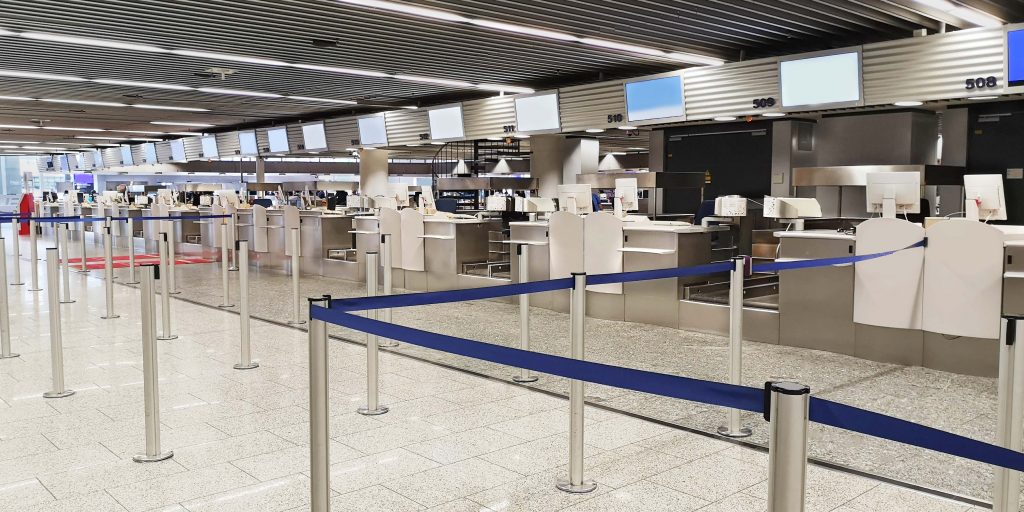By Gary Kelly
Although it’s still likely to be a while before we’ll all be meeting up again person-to-person, it’s never too soon to keep on eye on travel restrictions that are in place.
As lockdown is eased across most countries, a semblance of normality is returning to society. The three European countries hardest hit in terms of Covid mortality – Italy, Spain and The United Kingdom – lived the isolation experience in very different ways – in terms of the harshness of the restrictions and the penalties for those who didn’t comply. Differences in strategy still continue to thrive, especially in terms of international travel. Spain for example, which relies heavily on tourism to boost its GNP (12% of which comes from tourism), has recently announced that its summer holiday industry is due to resume from early July, when quarantine measures on international travellers are expected to be fully lifted. The joy at this news for the millions for British holidaymakers who flock to Spanish beaches and holiday homes in the Costas every year was short-lived as the UK government followed up with an announcement that from mid-June a 14-day quarantine is to be imposed on ALL people entering the UK, including British Citizens. So much for their holiday in Spain!
Unlike the tourist industry, hair and beauty industry still has something of a reprieve when it comes to international travel. In accordance with what EsteticaExport.com has been reporting over the past few weeks, many Trade Fairs, Events and Exhibitions are still scheduled to take place from September 2020 onwards, but there really nothing on the cards before then. Optimists among us will dictate that by September, everything will be pretty much back to normal; the more diffident speak of ‘second peaks’, of trying to run before we can walk… of putting the cart before the horse.
However, the situation might evolve, it’s absolutely vital that everyone planning to travel abroad – for business or pleasure – must factor in the likelihood of their plans being scuppered by quarantine and forced isolation, both after the outward and inward bound legs of their journey; (remember those British tourists who’ll have to put up with two weeks of house-arrest after their holiday on the Costa Brava!).
Here is a summary of how the situation currently stands in some of our industry’s most visited territories:
GERMANY
This is a complicated one as Germany is federal country and so each of the 16 federal states decides independently how to proceed when it comes to decision on freedom of movement. There is, however, a general warning in place until June 14th and after than that there will possibly be a quarantine rule for countries with a high infection status. Until now, visitors from neighbouring countries such as Austria, Switzerland, France and Poland can only arrive with good reason, while North Rhine-Westfalia, which has a border with The Netherlands, has had no border quarantine restriction since May 14th. The state of Thuringia has announced the lifting of all Coronavirus-related restrictions as of June 6th.
USA
In The United States of America the CDC (Centre for Disease Control and Prevention) has issued a colour-coded world map showing travel restrictions and prohibitions according to country of departure (https://www.cdc.gov/coronavirus/2019-ncov/travelers/map-and-travel-notices.html). At the present time, travellers from most European countries, plus China and Iran, are not allowed to enter the United States; there are very few exceptions to this rule.
SPAIN
Measures to close Spain’s land borders were introduced in mid-March in a bid to further stop the spread of the coronavirus in the country, bringing the nation’s tourism to a halt. Now, the country is slowly emerging from one of the continent’s toughest lockdowns, with foreign tourism has become part of the equation. Prime Minister Pedro Sanchez has declared Spain will soon be expecting tourists to return. “As of July, Spain will be expecting you,” he announced last weekend. “Foreign visitors can now start planning their holidays to Spain.” The Spanish authorities had been toying with the idea of a 14-day quarantine for all visitors on arrival. Instead, the country is welcoming tourists back with a hope it will lead to a much-needed economic recovery.
UNITED KINGDOM
Last week,confirmation from the UK Home Secretary, Priti Patel, that as from June 8th, all travellers wishing to enter the United Kingdom will have to undergo 14 days of house arrest/quarantine before they will be allowed to move freely among the resident population. The reason for this is that infection levels in the general population are now thought to be so low that it is feared there could be a second peak as a result of contagion carried here from abroad. Many British people are very angry and perplexed by this decision, especially as airports remained open and no health checks on incoming visitors were carried out when the virus was at its UK peak in early April! From June 8th, visitors to the UK will need to provide an address where they will be staying and spot checks will be carried out; those not confirming will be subjected to a £1,000stg fine. This will also apply to British Citizens traveling abroad when they return to the UK. The government has spoken about a possible exemption for travel between France and England, but apart from that, the 14-day house arrest applies to visitors from all countries, except the Republic or Ireland.
FRANCE
The French Ministry for Europe and Foreign Affairs has created legal framework which makes it possible to impose a 14-day quarantine or isolation measures at home or in appropriate accommodation. These measures come on top of the travel restrictions which came into force on March 18th and will remain in place until at least June 15th. Furthermore, for travellers arriving from European countries whose authorities have decided to apply 14-day quarantine measures to travellers entering their territory from European countries, a voluntary 14-day quarantine period will be reciprocally requested. For example, May 25th onwards, travellers arriving from Spain by air are asked to go into voluntary quarantine, because Spain imposed a quarantine system on 15 May for travellers arriving in Spain by plane. Likewise, travellers arriving from the United Kingdom, whatever their nationality, will be asked to go into a 14-day quarantine period when the British 14-day quarantine measure comes into force on June 8th.
ITALY
The situation in Italy is very fluid and the rules are changing rapidly. The border will be open inside the EU on June 3rd but many areas will still require quarantine or medical tests to allow people to travel freely. Until June 2nd, it is still forbidden to travel, by public or private transport, to a region other than the one in which you are currently located, except for proven work reasons, absolute emergencies, or for health reasons. From June 3rd onwards, travel between regions will be permitted. Inter-regional travel may be limited only by measures taken in relation to specific areas of the national territory, in accordance with the principles of adequacy and proportionality to the epidemiological actual risk present in those areas. It is still unclear what restrictions will be in place for visitors arriving from outside the European Community.
JAPAN
At the moment, heavy restrictions exist for any foreigners wanting to enter Japan. Only diplomats and people with urgent needs can enter, but even then, subject to quarantine restrictions. Most entry visas are suspended from all major countries in the world and so foreign nationals denied permission to enter Japan for the time being, unless there are very exceptional circumstances.
CHINA
There is still no indication as to when the strict rules applied to foreigners entering China are likely to be loosened. At the present time, no foreigners can enter China under any circumstances. Chinese citizens wishing to return home do have a few possibilities, but these are restricted to an average of one flight per week from major airports around the world. On March 29, the Civil Aviation Administration of China (CAAC) announced that Chinese airlines would be only allowed to maintain one international route to any specific country – with no more than one flight every week. Foreign airlines are only allowed to maintain one route to China, with no more than one weekly flight. This policy will last until October 2020. Business travellers must check if their flight is approved by the CAAC, or they will risk having their air tickets cancelled. To further add to the crisis, the political situation pertaining to Hong Kong continues to negatively affect travel in that particular area.











